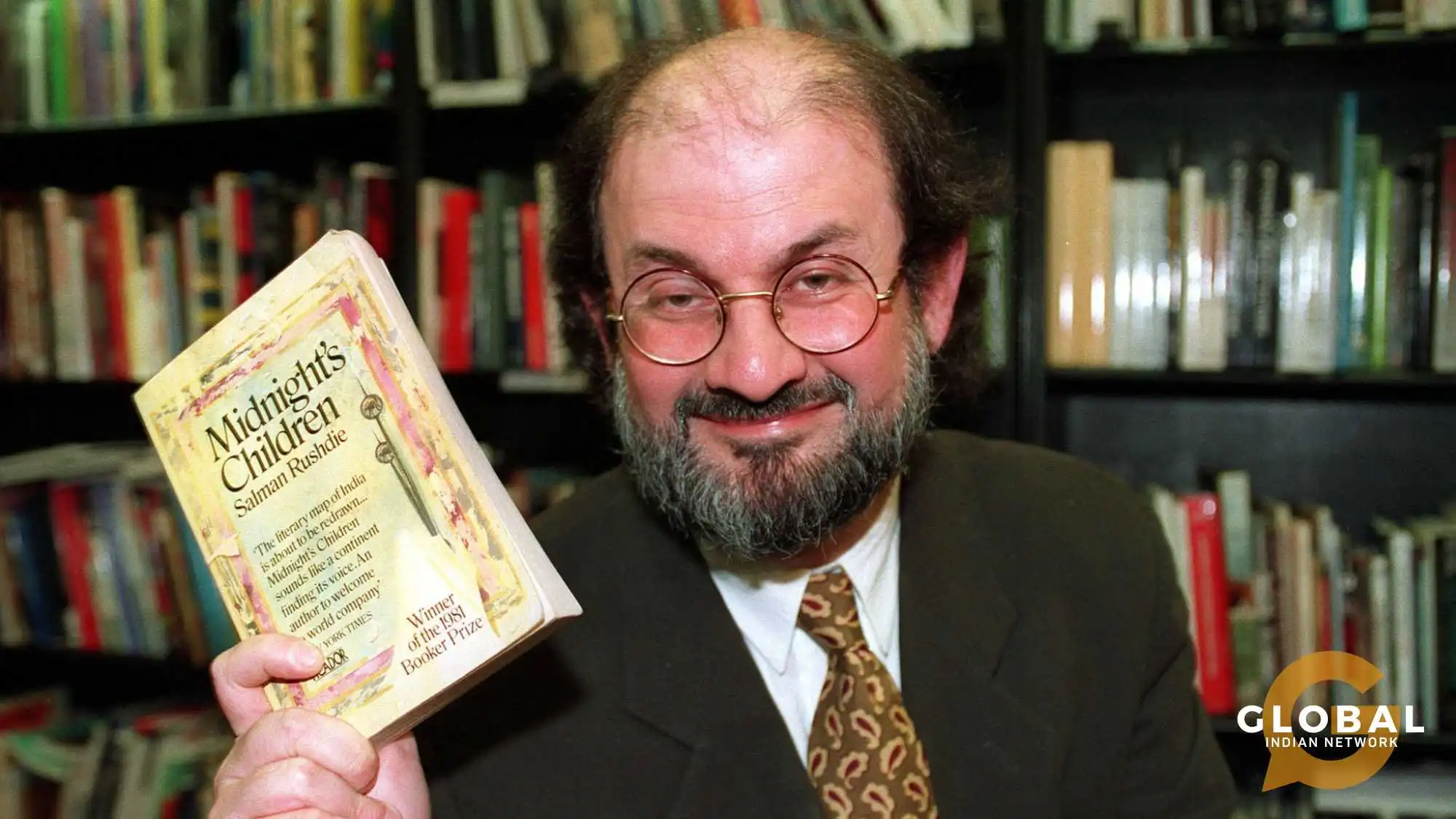Have you heard of Salman Rushdie‘s novel “Midnight’s Children”? It’s a fascinating read that delves into crucial themes like personal growth, identity, and the impact of family and community on an individual’s journey. The story follows Saleem Sinai, who was born at the midnight hour, the precise instant India gained independence from British rule and a remarkable gift of telepathic powers connecting him to India’s 1000 other “midnight’s children.”.
In this article, we’ll look closer at the role of family and community in Saleem’s journey and identity formation. This article explores the novel’s different family and community relationships and how they shape Saleem’s experiences and understanding of himself and the world around him. So, get ready to dive deep into the world of “Midnight’s Children”!
Table of Contents
Some Interesting Facts about “Midnight’s Children”
- Salman Rushdie’s “Midnight’s Children” bagged the Booker Prize in 1981. It was later awarded the “Booker of Bookers” in 1993 and 2008 on the award’s 25th and 40th anniversary.
- The novel draws heavily on Indian history and mythology, incorporating key events and elements of history. It contains references to the partition of India and the Emergency in the 1970s.
- The novel is famous for using magical realism, blurring the lines between reality and fantasy.
- Ahmed Salman Rushdie wrote “Midnight’s Children” while living in Pakistan. Several publishers initially rejected the manuscript before being published by Jonathan Cape in London.
- It has been adapted into a stage play, and Director Deepa Mehta made a film version.
Role of Family in “Midnight’s Children”
Family plays a significant role in the protagonist Saleem Sinai’s personal growth in the novel. Saleem’s family dynamics shape his experiences and identity throughout the story, from his parents and grandparents to his siblings.
Saleem’s relationship with his parents, Amina and Ahmed Sinai, is complex. While Saleem has a close bond with his mother, he struggles to connect with his distant and emotionally detached father. Ahmed’s lack of affection towards Saleem makes him feel rejected and fuels his desire for attention and validation. This need for recognition ultimately drives Saleem’s actions and decisions throughout the novel.
Similarly, Saleem’s relationship with his grandparents, especially his grandmother, Naseem, plays a crucial role in forming his identity. Naseem’s stories of their fascinating family saga and her connection to the mystical world of the “Midnight’s Children” influence Saleem’s perception of himself and his place in the world. Her death leaves Saleem feeling lost and disconnected from his roots.
Furthermore, Saleem’s siblings, mainly his sister Brass Monkey, provide emotional support and a sense of competition. Their shared experiences as Midnight’s Children with special powers create a unique bond that shapes Saleem’s identity and influences his decisions.
Overall, family dynamics in Midnight’s Children illustrate how a person’s upbringing and relationships can impact their identity and personal growth. The love, acceptance, and support from family can provide a strong foundation for an individual’s development. In contrast, a lack of emotional connection or support can give rise to feelings of rejection and insecurity. Saleem’s family relationships illustrate this dichotomy and highlight the importance of strong familial bonds in shaping one’s identity and personal growth.
Role of Community in “Midnight’s Children”
Community is a key theme in this book and plays a crucial role in the personal growth and identity formation of the protagonist, Saleem Sinai. The novel explores various communities, including the Midnight’s Children group, the city of Bombay, and the nation of India, and how they shape Saleem’s experiences and identity.
The Midnight’s Children group serves as a community of individuals with unique abilities and shared experiences. Saleem’s connection with this group gives him a sense of belonging and identity. However, as the group becomes increasingly divided, Saleem’s loyalty is tested, and he must navigate the complex dynamics within the community to determine his place.
The city of Bombay also serves as a significant community in the novel, shaping Saleem’s experiences and identity. The diverse and vibrant city is a microcosm of India’s diverse culture, history, and politics. Saleem’s interactions with various city communities give him a broader understanding of Indian society and the complex relationships between different groups.
Additionally, the nation of India itself is a community that shapes Saleem’s identity and experiences. The novel explores India’s struggle for independence and the subsequent challenges of nation-building. Saleem’s connection to India’s history and identity as a newly independent nation shapes his understanding of his place in the world and his role in shaping India’s future.
In a nutshell, community dynamics in “Midnight’s Children” illustrate how one’s connection to various communities can shape one’s identity and personal growth. The novel emphasizes the importance of understanding and navigating the complex relationships within communities to determine one’s place and role within them. Saleem’s journey illustrates the significance of these connections and their impact on an individual’s experiences and understanding of themselves and the world around them.
Intersection of Family and Community in Midnight’s Children
In this masterpiece of Salman Rushdie, the intersection of common themes such as family and community plays a significant role in shaping Saleem’s personal growth and understanding of his place in the world. Saleem’s experiences with his family and various communities intersect to create a complex web of relationships that shape his identity and experiences.
Saleem’s family relationships influence his understanding of his place in the world. His parents’ divergent experiences and beliefs reflect India’s broader societal and political tensions. Saleem’s connection to his grandparents and their collective history also shapes his understanding of his place in India’s history. The tension between his family’s past and present also highlights the complexity of individual and national identity.
At the same time, Saleem’s experiences with various communities intersect with his family relationships to create a complex understanding of his place in the world. His experiences with the Midnight’s Children group and the diverse communities in Bombay shaped his identity and knowledge of India’s diverse culture and history. The intersection of these various communities creates a complex understanding of the impact of social and political dynamics on personal growth and identity.
Furthermore, the novel explores the tension between familial and communal loyalties, highlighting the complexity of navigating relationships within and between communities. Saleem’s experiences with the Midnight’s Children group and his family illustrate the tensions between commitment to one’s immediate family and a broader community. The novel dwells on the importance of understanding and navigating these complex relationships to determine one’s place and role within communities.
ALSO READ: Exploring Identity and Belongingness in Salman Rushdie’s Popular Novels
Conclusion
In “Midnight’s Children“, Salman Rushdie brilliantly portrays the interplay between family, community, and personal growth. Saleem’s experiences demonstrate the crucial role of family and community in shaping one’s identity and relationship with society.
The novel highlights the importance of recognizing and embracing the influence of family and community on our journeys of growth and self-discovery.
FAQs
Who is the Protagonist of “Midnight’s Children”?
The protagonist of “Midnight’s Children” is Saleem Sinai.
Is “Midnight’s Children” based on a real story?
“Midnight’s Children” is a work of fiction. Although it is loosely based on historical events in India, it has elements of history incorporated into its plot.
What is the message of “Midnight’s Children”?
Salman Rushdie’s “Midnight’s Children” message is about the importance of personal and national identity and the effects of historical events on individuals and communities.
What is the summary of “Midnight’s Children”?
Booker Prize-winning novel “Midnight’s Children” revolves around the life of Saleem Sinai, who was born when India gained independence from British rule and explores his personal experiences and the more significant historical events that shaped his life and the lives of those around him.
Is “Midnight’s Children” easy to read?
Ahmed Salman Rushdie’s “Midnight’s Children” can be challenging to read due to its complex narrative structure and use of magical realism. Still, it is widely regarded as a classic of postcolonial literature.









